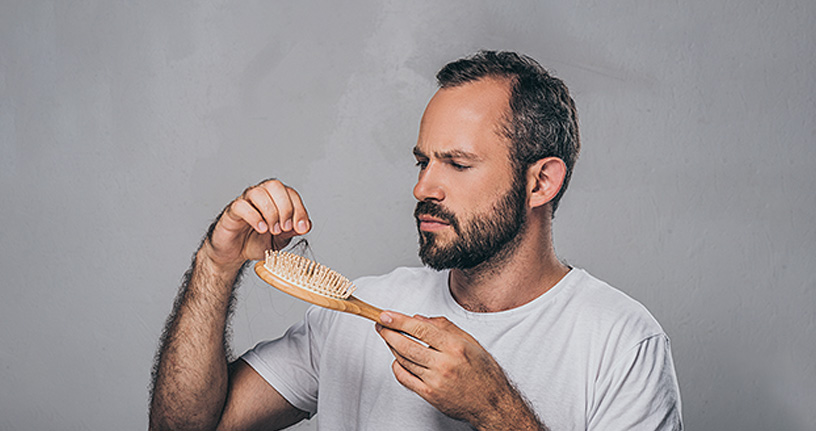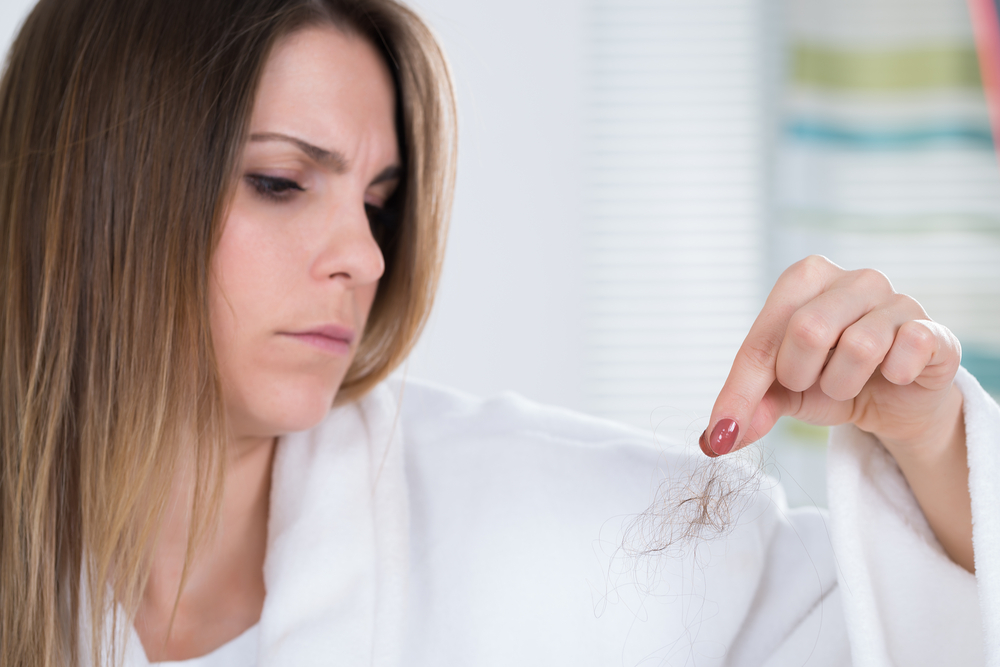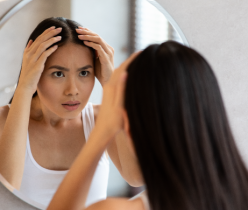An individual with severe iron deficiency anaemia may have fatigue, shortness of breath, and chest pain, and some people also experience hair loss. Researchers and healthcare experts are unsure why some individuals who experience hair loss have low iron levels. However, iron is an essential substance that helps cell growth. According to some research studies, hair follicle cells can be particularly sensitive to reducing iron levels and may be unable to grow new cells effectively when there are low iron levels in the body. In this blog, learn about the association between hair and iron deficiency and treatment options for each, including hair loss solutions, iron pills and iron supplements for women that help prevent hair loss.
Relation between Iron deficiency and Hair loss
Scalp hair has psychological and social effects on women. Loss of hair contributes to poor quality of life and social functioning. Hairs are rapidly proliferating organs with much requirement for blood supply. Therefore, various research studies have investigated the association between micronutrients and hair loss.
The most widely cited nutritional causes of hair loss include iron, one of the major macronutrients in our body’s metabolism. From its diverse functions, iron deficiency is well known to be related to many pathological conditions; however, its role in hair loss is not well established yet.
The cause of iron deficiency must be identified. Patients with risk factors associated with blood loss should be evaluated for sources of blood loss, especially gastrointestinal (for ex-colon cancer). Several research studies have investigated the relationship between iron deficiency and hair loss. Some suggest that iron deficiency may be related to alopecia areata, androgenic alopecia, diffuse hair, etc. There is insufficient evidence to suggest universal screening for iron deficiency in people with hair loss. Additionally, there is inadequate evidence to suggest giving iron pills for hair fall control in the absence of iron deficiency anaemia.
Treatment
People dealing with hair loss and iron deficiency must treat both conditions separately.
Treating hair loss
Healthcare experts can recommend many treatments to people experiencing hair loss, including:
-
-
- Minoxidil – This a medication for men with male pattern baldness. It is available as a topical solution. Experts believe this topical product allows hair to stay in the growth phase (anagen) for longer.
-
-
-
- 5-alpha reductase inhibitors – These include medicines such as Finasteride which help increase the level of certain enzymes in the body that promote hair growth.
-
-
-
- Surgical procedures include hair transplants to help restore a person’s hair.
-
Experts are continually researching new strategies to restore hair. One example is platelet-rich plasma therapy, also known as PRP treatment. This technique involves separating platelets from a sample of an individual’s body using a specialized machine and then injecting these platelets into areas of the scalp that affect hair loss. Experts believe that platelets carry a significant amount of growth factors, which can help with hair growth. However, more research is needed to prove PRP’s effectiveness.
Treating iron deficiency anaemia
Treatments for iron deficiency include iron supplements, iron tablets, iron shots, and, last but not least dietary changes.
-
-
- Iron supplements – A physician may prescribe iron supplements for women to help their bodies restore iron over time. Men and women should always consult their healthcare experts before taking iron pills because they can cause severe side effects. Individuals can take iron supplements for 3 to 6 months before they reach low levels of iron in the body. Doctors mostly prescribe iron tablets for women during their pregnancy phase.
-
-
-
- Iron shots – Iron injection can be used to raise iron levels faster. People who are severely anaemic may need ion injections. Those with Crohn’s disease who cannot absorb iron may also benefit from iron shots.
-
-
-
- Dietary changes – Eating iron-rich foods can help increase iron levels in your body. Foods with a good iron content include chicken, fish, red meat, legumes, and leafy vegetables.
-
Conclusion
Loss of scalp hair is not a serious life-threatening disease, but it can cause psychological distress that adversely affects the quality of life. Iron deficiency is the world’s most common nutritional deficiency and is associated with developmental delay, impaired behaviour, diminished intellectual performance, and reduced resistance to infection.
The most common cause of iron deficiency anaemia in premenopausal women is blood loss during menstruation and pregnancy. In men and postmenopausal women, the most common causes of iron deficiency anaemia are gastrointestinal blood loss and malabsorption. According to research studies, there is not enough evidence that suggests that taking iron supplements will help an individual with hair loss grow new strands if they have iron deficiency anaemia. However, several effective solutions for hair growth are available.
People with hair loss should consult an expert about treatment options. If an individual has low iron levels, increasing iron intake in diet will likely help them to feel better overall.




